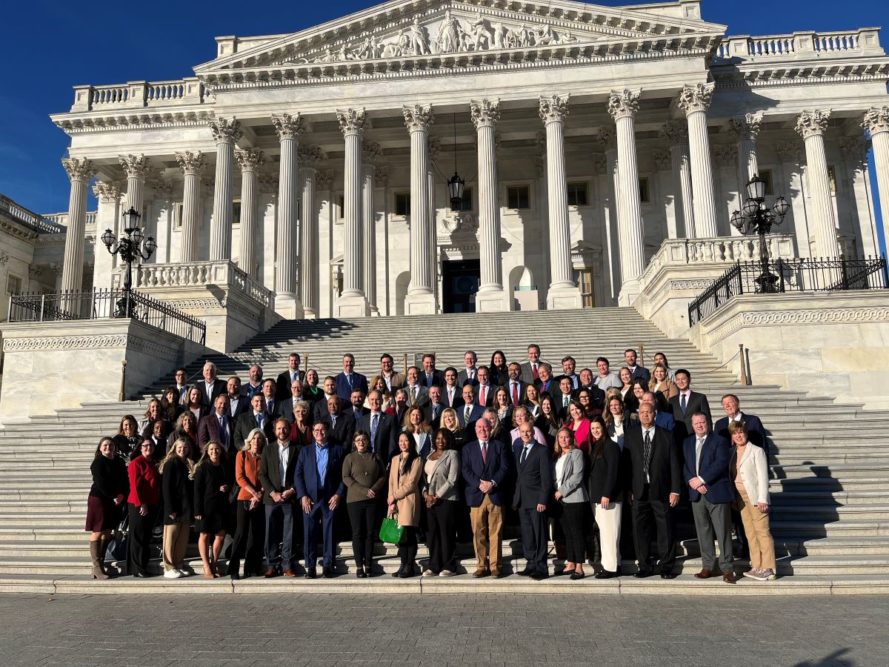Bakers had a beautiful sunny day to bring their concerns to the offices of their senators and congressional representatives at the 2023 Bakers Fly-In and Policy Summit.
The American Bakers Association (ABA), the American Society of Baking (ASB) and Retail Bakers of America (RBA) joined forces for the fly-in, held Nov. 13-15 in Washington, DC. Members spent Nov. 14 meeting with the staffs of Senate and House of Representative members to advocate for issues affecting the baking industry, including commercial bakeries that employ more than 789,000 workers, representing $42.8 billion in wages.
“Bringing together the leadership from all segments of the baking industry, including wholesale, retail and supplier organizations to educate members of Congress demonstrates the industry’s commitment to providing firsthand insights into the critical issues impacting all of us,” said Rasma Zvaners, vice president, government relations, ABA.
Kristen Spriggs, ASB executive director, said the event was a great learning experience.
“ASB was honored to co-sponsor with RBA the Fly-In and Policy Summit hosted by ABA,” she said. “Participating members benefited from an educational and insightful program whether their interest is in workforce or nutrition policy. The event was a tremendous learning and networking opportunity where we could raise our collective voices to express challenges facing the baking sector. It is the model of deepening collaborative relationships to strengthen our industry.”
Participants started the day learning about what to expect during meetings and some Hill best practices as they prepared for congressional meetings. The three primary issues they discussed were workforce and economic security, permanent full expensing and the creation of a bipartisan Congressional Baking Caucus.
A Baking Caucus would be a group of House members who advocate for the industry, serve as a resource in educating their colleagues about the baking industry and the issues important to bakers and their role in feeding and employing Americans.
Members also urged the limitation of regulations that could hinder employers. For instance, the long wait times for immigrants seeking the proper paperwork from the federal government necessary for employment were discussed as well as a number of proposals from the Labor Department that could negatively impact the industry. And members also urged the extension of the Farm Bill, which provides funding for key farm and food aid programs.
Since 2017, the tax code has allowed bakers to deduct the cost of purchased capital equipment in the year they’ve purchased it rather than depreciating it over years. This will be phased out and then eliminated in 2027 unless Congress acts, and ABA is advocating for this rule to remain in place.
Members split into 12 groups in Washington, DC, to visit representatives where they live and do business. Meetings took place in House and Senate offices surrounding the Capitol, which celebrate their states through memorabilia and photos. For instance, Georgians offer packets of Georgia peanuts displayed in bowls in their front offices, and more than one had University of Georgia Bulldogs flags or keepsakes.
Bakers shared the economic footprint of their operations with each House and Senate office they visited to explain the vast influence the industry has on state economies. For instance in Florida, bakers provide more than 32,000 jobs, which translates into wages of $1.4 billion and tax revenues of nearly $1.7 billion.
The day ended with a Bakers Dozen Capitol Hill Reception in the Cannon House Office Building for bakers who attended fly-in meetings and House and Senate members and their staffs. ABA recognized members of Congress during its annual Bakers Dozen Congressional Awards Ceremony and showcased commercially baked products for event participants to taste and celebrate the progress of the baking industry.




